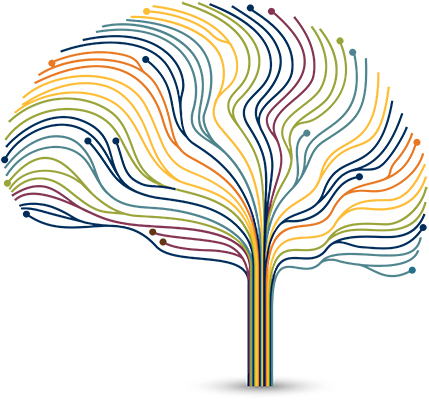The Howard Hughes Medical Institute (HHMI) awarded UNC a five-year, $1 million grant to develop a classroom model and establish a new center to engage more students, from all background, in sciences.
UNC is one of 24 colleges and universities selected out of 511 in the first round of the Inclusive Excellence initiative sponsored by HHMI, the largest private, nonprofit supporter of science education in the United States.
Susan Keenan, Ph.D., professor and director of the School of Biological Sciences, is the grant's project director.
A non-traditional, first-generation student herself, Keenan says she fell in love with science during a summer Research Experiences for Undergraduates (REU) opportunity funded by NSF as a college junior. After earning a bachelor's degree in chemistry, she went on to earn a Ph.D. in pharmacology and physiology from St. Louis Medical School, with postdoctoral work at University of Medicine and Dentistry of New Jersey. She joined UNC's faculty in 2006, and became the director of School of Biological Sciences in 2011.
Three years later she attended the White House Opportunity Initiative: STEM Education workshop — one of several experiences that ignited her interest in student retention, persistence and success. She also attended conferences and workshops for diversity and inclusion, learning about equity and high-impact practices for student success.
Inspired by these experiences, Keenan worked UNC Professor of Mathematics, Jodie Novak, Ph.D., and with Associate Director of UNC's Mathematics and Science Teaching (MAST) Institute, Lori Reinsvold, Ph.D., to seek funding that would support student success. The HHMI grant (which also includes Assistant Professor of Psychology, Cassendra Bergstrom, Ph.D. as an investigator), is a culmination of their efforts.
"This grant is important as it focuses on faculty and institutional change rather than changing the students," Keenan says. "As an institution, when we accept students and they matriculate to campus, I believe we're morally obligated to provide the support and environment within and outside the classroom to enable each student to thrive."
As part of the award, UNC faculty are researching student experiences in their own STEM classrooms to better understand the conditions that support intrinsic motivation among students. Faculty will analyze their data and implement instructional practices to help achieve student success.
"Shifts in faculty practice will impact all students positively," she says, "but in particular will impact students entering STEM majors via nontraditional pathways (students of color, first generation students, students from low income backgrounds, transfer students, veterans and members of the LGBTQ community) whose experiences are rarely visible.
Since the grant began in September of 2017, Keenan says the team has focused on preparation and learning. They are developing workshops for administrators and faculty to explore equity and inclusive excellence in STEM at UNC, and have collaborated with UNC's cultural and support center directors, who bring a wealth of information and insight to the project.
Additionally, the team collected data that was disaggregated by race, gender and generational status, then worked with the Center for Urban Education (CUE) at the University of Southern California's Rossier School of Education to develop a series of equity workshops for the project leadership teams and others (administrators and cultural center directors for example) on campus. The first workshop was held in January this year, with five more scheduled through the spring semester.
"By engaging a critical mass of STEM Faculty and administrators in understanding students' experiences and perceptions of the conditions for intrinsic motivation, the project will dramatically shift UNC's institutional culture toward inclusive excellence in STEM," Keenan says. "This grant expands UNC's capacity for inclusion to engage all students by leveraging students' experiences in STEM classrooms."
HHMI expects that Inclusive Excellence grants will produce useful models for other schools that might share similar contexts and challenges.
Project Goals
The project's goal are four fold to:
looks_one
Enable STEM faculty to create classroom environments that positively impact students intrinsic motivation within the context of equity and inclusive excellence
looks_two
Increase intrinsic motivation, persistence and graduation rates in STEM programs for students from nontraditional pathways.
looks_3
Provide administrators with the knowledge to support faculty to engage in practices to provide an inclusive classroom.
looks_4
Advance our understanding as a result of the successes and challenges of project implementation, resulting in a model for adaption and replication.


